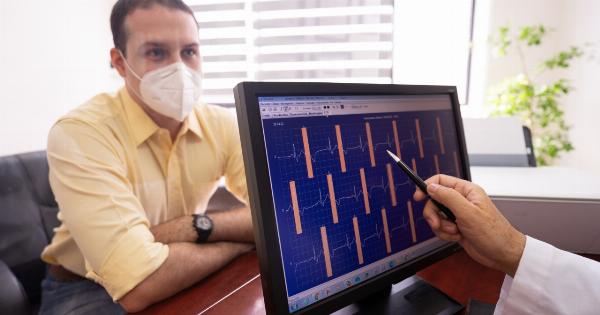High blood pressure, also known as hypertension, is a common health condition that affects millions of people worldwide.
It occurs when the force of blood against the walls of the arteries is too high, putting extra strain on the heart and blood vessels. If left uncontrolled, high blood pressure can lead to serious health complications such as heart attack, stroke, and kidney disease.
Evening Medicine: A Potential Solution
A recent study has revealed that taking medication for blood pressure in the evening may be more effective in controlling and managing blood pressure than taking it in the morning.
The research, conducted by a team of scientists at the University of Vigo in Spain, showed that the timing of medication intake has a significant impact on blood pressure levels.
The Study: Findings and Methodology
The study involved 2,000 participants with hypertension who were already taking medication to control their blood pressure.
Half of the participants were instructed to take their medication in the morning, while the other half were advised to take it in the evening. The researchers monitored the blood pressure levels of all participants over a period of two years.
The results of the study were striking. The participants who took their medication in the evening had significantly lower blood pressure levels compared to those who took it in the morning.
On average, evening medication takers experienced a decrease in systolic blood pressure of 18 mmHg and a reduction in diastolic blood pressure of 8 mmHg. These findings were consistent across participants of all ages and diverse demographic backgrounds.
The Science Behind the Benefit
Various factors influence the efficacy of medication in controlling blood pressure. One such factor is the body’s natural circadian rhythm, which regulates physiological processes over a 24-hour cycle.
Blood pressure typically follows a circadian pattern, being lowest during sleep and highest in the early morning.
The researchers hypothesized that by taking blood pressure medication in the evening, when blood pressure tends to be lower, it could have a more significant impact on reducing overall blood pressure levels.
The study confirmed this hypothesis, demonstrating that evening medication intake aligns better with the body’s natural rhythm and optimizes the effectiveness of the medication.
Implications and Recommendations
The findings of this study have potential implications for the millions of individuals worldwide who are currently managing high blood pressure.
Shifting medication intake to the evening could offer a simple yet effective strategy to improve blood pressure control and decrease the risk of associated health complications.
It is important to note that this study focused on individuals already taking blood pressure medication.
If you have been prescribed medication for high blood pressure, it is crucial to consult with your healthcare provider before making any changes to your medication schedule. They can provide personalized advice and guidance based on your specific situation.
In addition to medication, lifestyle modifications are key to managing and maintaining healthy blood pressure levels. These modifications may include:.
- Eating a balanced diet rich in fruits, vegetables, whole grains, and low-fat dairy products.
- Limiting sodium intake by reducing the consumption of processed and packaged foods.
- Engaging in regular physical activity, such as brisk walking, swimming, or cycling, for at least 30 minutes most days of the week.
- Avoiding tobacco and excessive alcohol consumption.
- Managing stress through relaxation techniques like deep breathing exercises, yoga, or meditation.
- Maintaining a healthy weight through a combination of a nutritious diet and regular exercise.
- Getting adequate sleep, aiming for 7-8 hours of quality sleep per night.
Conclusion
The timing of blood pressure medication intake plays a crucial role in its effectiveness. The study mentioned above highlights the potential benefits of taking medication in the evening for individuals with hypertension.
However, it is essential to consult with your healthcare provider before making any changes to your medication schedule.
Remember, managing healthy blood pressure levels goes beyond medication. Incorporating a healthy lifestyle, including a balanced diet and regular physical activity, is equally important.
By adopting these lifestyle modifications and following your healthcare provider’s guidance, you can take control of your blood pressure and enhance your overall well-being.




























